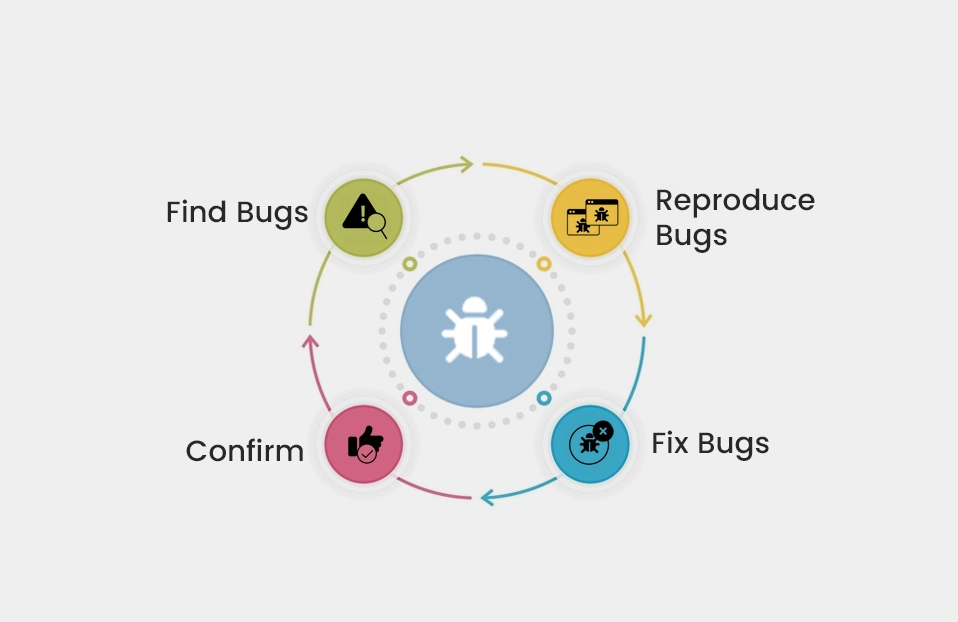Test Management
 April 02, 2020
April 02, 2020

Test Management:
- Test management refers to the activity to manage whole testing processes and leads to reach the project goal
- Test Management helps to ensure that, the flow of testing is going on the right way or need to modify. It also provides traceability and whole testing control across different phases of test management
Phases of Test Management:
Mainly Test Management is divided into two subcategories
Planning Phase:
- Risk Analysis
- Test Estimation
- Test Planning
- Test Organization
Execution Phase:
- Test Monitoring and Control
- Issue Management
- Test Report and Evaluation
Planning Phase:
1. Risk Analysis:
- Its a first phase where the test manager identifies future risks in the project and plan to minimize risks in the project at an early stage.
- Risk Analysis phase help in detecting risk on early-stage and find a solution to avoid future loss
- It doesn’t mean all the risks are defined for the whole project as some of the risks we only can identify at the execution stage as well
2. Test Estimation:
- In this phase, the test manager identifies how long it will take to complete the testing process
- Test manager estimates Cost, Resources, Skills, & time in this phase
3. Test Planning
- In this phase, all the testing documentations are made with detailed information.
- Test planning covers the scope of testing, Testing Strategy, approach, resources allocation, test schedule and many more
- This phase is very important as a whole testing structure is defined at this stage
4. Test Organization
- In this phase, Assignments of roles and responsibilities, Creating testing teams, & managing teams being defined according to test planning
Execution Phase:
1. Test Monitoring and Control
- In this phase, we need to monitor if we are going in the right direction or not according to the scheduled plan
- Monitoring is a process of gathering information about the project activity
- Via control, we need to manage procedures if actual progress is not working as expected
2. Issue Management
- There are some issues which can not be identified at an early stage. It may be found in the validation phase-only while executing testing
- In this phase, we manage whatever issues we come across with test plan and try to get it back in shape
3. Test Report and Evaluation
- This phase runs after project completion
- In this phase, we create an evaluation report based on the project cycle and it can be helpful for future projects
Test Management Tool
- There are a number of test management tools in the market like Test rail, Qtest, Zephyr, PractiTest and many more, which are providing facility to create Test Project/test suit/test case and execute testing to identify if the product is working as expected or not?
- It helps to measure test coverage and confidence of tester toward testing any product
- Tracking can be possible with it and we can cross-check from where functionality is broken
- There are different states for each test case like Pass, Fail, Re-test, Blocked, Un-tested which need to update accordingly while executing testing
- Some of the test management tools are providing an autogenerated graph of whole execution and we can filter out progress accordingly, also it helps for client reporting
Importance of Test Management:
- Test management helps to identify major issues/risks at an early stage and prevent costs and time
- We can track testing progress at any stage of time
- We can control the state of the testing process
- Testers get more confidence for their project if everything is planned and executed in a good manner
- It helps to align the testing process and productivity of the project at the same time



